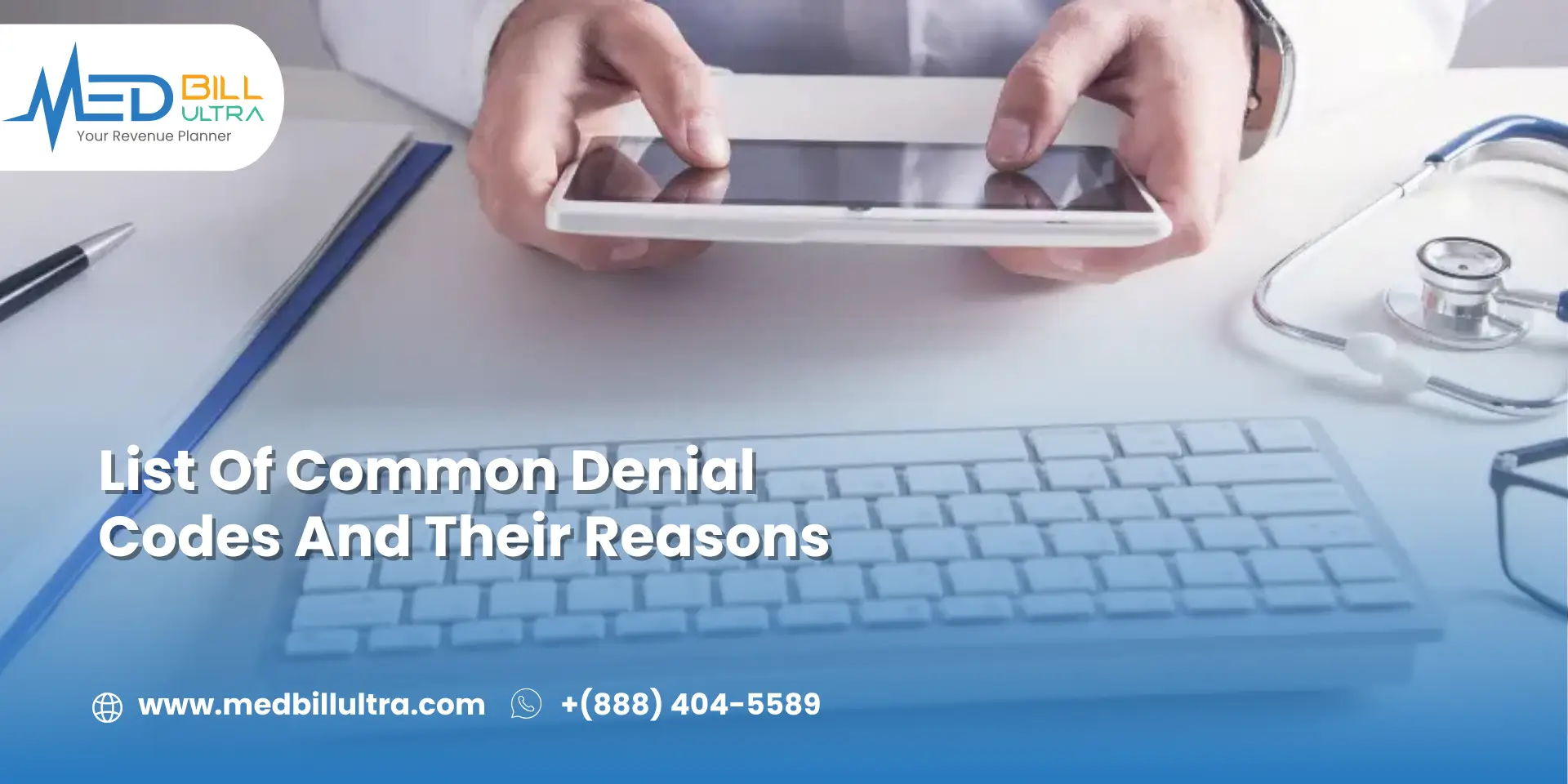
How Does Medical Coding Work

Medical coding and billing are central core to the process of healthcare financial management. It refers to the process of converting medical diagnosis, procedures, services, or equipment to unique numerical frames, which facilitates the claim’s processing within insurance companies and guarantees that healthcare manufacturers would claim the deserved amount for the services. Come with me to explore what medical billing and coding is, how it help healthcare organizations, and how companies like Med Bill Ultra assist healthcare providers in proper coding. Medical coding fits in the healthcare space as a linkage of the clinical side of the delivery of care with the substantial expense accounts of healthcare patients. Healthcare organizations would fail to get reimbursement for their services without medical coding. Medical coding certification guarantees that everybody in the spectrum from the hospital, the doctor, the patient, and the insurer is on the same page and that the whole process of healthcare reimbursement is seamless and accurate.
How Does Medical Coding Work?
The purpose of this blog is to educate providers on what medical coding is, its place in billing, and what effect accurate coding has on revenue. We will discuss the process of medical coding, which types of codes are available at Pittsburgh Medical Center, and how organizations such as Med Bill Ultra aid healthcare organizations’ compliance, plus the minimization of mistakes to optimize revenue.
How Does Medical Coding Work
Medical coding converts healthcare diagnoses, treatments, and procedures into standardized alphanumeric codes (ICD-10, CPT) for billing and records. Coders review clinical documentation, assign accurate codes, and submit claims to insurers for reimbursement. Proper coding ensures compliance, reduces denials, and supports efficient care delivery. It bridges healthcare services and financial operations seamlessly.
→1. Provider documents patient
→ 2. Coder assigns ICD/CPT codes
→ 3. Claim submitted to insurer
→ 4. Reimbursement processed
Medical Code Sets
There are a number of global code users requiring medical coders to translate diagnoses, procedures, and treatments into a language insurance providers can comprehend. The most common code sets include:
ICD (International Classification of Disease): Refer to diagnosis and visit type.
CPT (Current Procedural Terminology): Healthcare codes for medical services that may be performed by healthcare personnel.
HCPCS (Healthcare Common Procedure Coding System): Contains codes not in CPT for medical equipment, supplies, and services.
Coding Process
The process starts with medical coders analyzing patient’s health records that contain information on the diagnosis and treatment. After that coders identify and assign the correct ICD, CPT, or HCPCS code to this diagnosis and procedure respectively. These codes are very important in the filling of insurance claims to the right insurance and correct payment.
Electronic Health Records (EHRs)
Coders employ EHRs to ensure that all the data about a specific object can be coded appropriately. EHRs make coding easier because coders get complete and updated information about the patient to get the best and most accurate code.
Compliance with Guidelines
Medical coding is subject to government laws such as Medicare and Medicaid and other insurance firms. Due to the ever-evolving regulations, a coder has to constantly update himself or herself to avoid coming up with wrong codes that will cause a claim to be rejected or underpaid.
Claim Submission
After coding the claims are made to insurance companies or the government payers. The coding at this should be very precise because it indicates how much a healthcare provider will be taken in terms of the service that they have rendered.
Error Prevention
Misinterpretation of code increases the risk of denial of a claim due to wrong, missing documentation and lack of adherence to code standards. Outsourcing medical coding companies like Med Bill Ultra have medical billing and coding certifications and use sophisticated tools and experienced teams to minimize errors in the coding process.
Advantages
Accurate Reimbursement
Medical coding covers that correct payments are made and to the right service providers in the context of healthcare service. If codes are not exact, the providers may receive lower payment or even payment may not be received on time.
Compliance with Regulations
Coding assists healthcare providers in operating with full compliance with the industry standards, as a result, there is no way the provider will be penalized for, or undergo an audit on account of wrong or non-compliance code.
Improved Cash Flow
Providers can receive payments quicker when claims are coded right and submitted at the right time, resulting in good cash flows.
Error Reduction
With the help of medical coding billing outsourcing to experts like Med Bill Ultra, coding eros are eliminated and thus, the chances of claim denial and rejection will also be done away.
How It Helps
Medical coding benefits the side of healthcare providers in several ways. It saves time on billing by making sure that possible procedures and diagnoses are translated into code forms that mean something to the insurance companies. This minimizes the chance of claims being rejected and increases the speed at which providers receive their payments.
Conclusion
Medical billing coding certification is one of the important functions in the healthcare sector and is the backbone of the billing and revenue cycle. Med Bill Ultra employs full-time coders to ensure that they are familiar with the changing coding practice hence reducing errors and increasing reimbursement.





